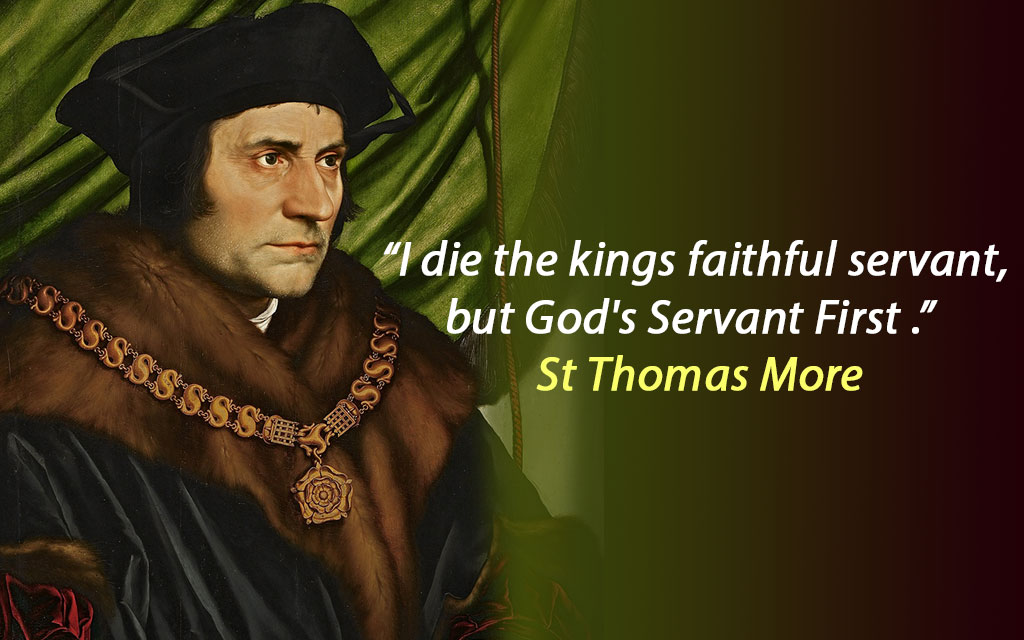June 26, 2022 – St. Thomas More “For God and for Country”
As we approach the celebration of Independence Day, I reflect on the dynamic of loyalties between one’s faith and one’s country – at times harmonious, and at times in tension. Many books have been written on this, and there is much to say that goes far beyond the scope of this little column. But in these questions, I look at Saint Thomas More, whose feast day was just this past week, June 22. Most of what I know about him and some of the quotes I include here are from the 1960s film A Man for All Seasons (which I highly recommend). St. Thomas More lived as a lawyer in England in the 1500s. He quickly rose up to the very high government position of Lord Chancellor of England. However, when the King of England broke away from the Catholic Church, Thomas More was put in a difficult position. Being a man of deep Catholic faith and of integrity, Thomas More saw that the best way to serve his country was to follow his conscience by serving God first and above all else. As he said, “I think that when statesmen forsake their own private conscience for the sake of their public duties…they lead their country by short route to chaos.” He attempted to resign quietly from his position as Lord Chancellor. However, despite his attempts to remain quiet, he was pressed to publicly swear an oath to the King in support of his break from the Church, and when he refused, was put on trial for high treason. In his trial, he was accused of bearing ill will towards the king, to which he replied: “I do none harm, I say none harm, I think none harm. And if this be not enough to keep a man alive, in good faith I long not to live.” Eventually, Sir Thomas More, who saw himself as a loyal subject to both the King of England and to his own God, was condemned to death, making him a martyr for the faith. Thomas More’s final words before his execution and martyrdom: “I am commanded by the king to be brief, and since I am the king’s obedient subject, brief I will be. I die His Majesty’s good servant, but God’s first.”
During his imprisonment while on trial before his execution he wrote some letters, including a letter to his daughter, Margaret, that show his deep faith in God and trust in His Goodness and Mercy:
“… I cannot but trust in his merciful goodness. His grace has strengthened me until now and made me content to lose goods, land, and life as well, rather than to swear against my conscience…I will not mistrust him, Meg, though I shall feel myself weakening and on the verge of being overcome with fear. I shall remember how Saint Peter at a blast of wind began to sink because of his lack of faith, and I shall do as he did: call upon Christ and pray to him for help. And then I trust he shall place his holy hand on me and in the stormy seas hold me up from drowning. And if he permits me to play Saint Peter further and to fall to the ground and to swear and forswear, may God our Lord in his tender mercy keep me from this…Still, if this should happen, afterward I trust that in his goodness he will look on me with pity as he did upon Saint Peter, and make me stand up again and confess the truth of my conscience afresh … And finally, Margaret, I know this well: … he will not let me be lost. I shall, therefore, with good hope commit myself wholly to him.”
Peace,
-Fr. Kevin


